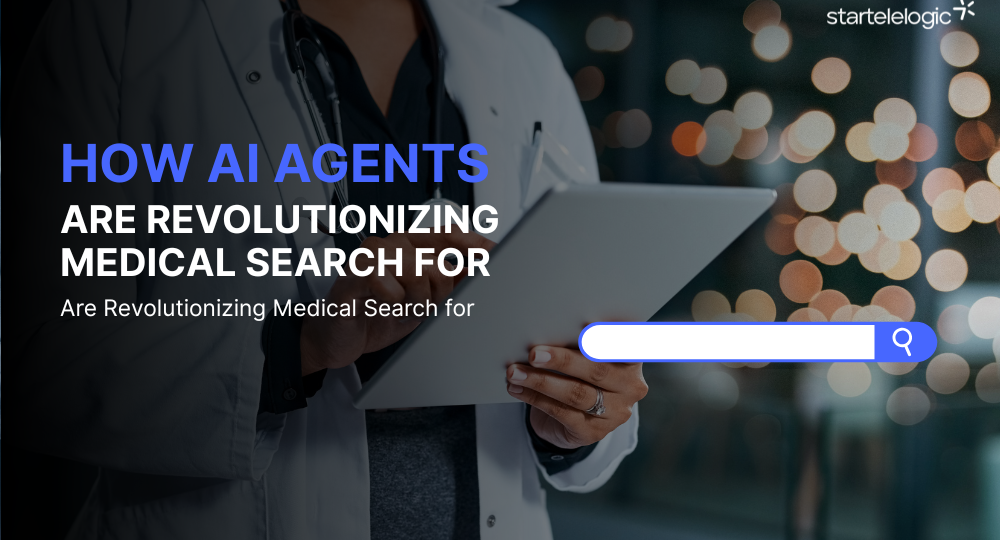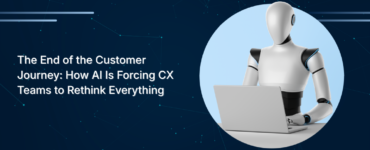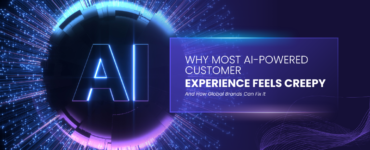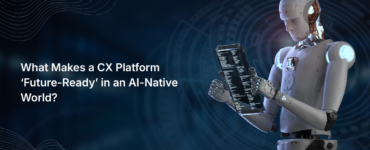You’re sitting in a doctor’s office, waiting anxiously for answers about your unusual symptoms. The doctor types a query into their computer, and within seconds, they have access to the latest research, treatment options, and diagnostic tools tailored specifically to your case. Sounds futuristic, right? Well, this isn’t science fiction—it’s happening now, thanks to AI agents. These intelligent systems are transforming how we search for medical information, making it faster, smarter, and more reliable than ever before.
But what exactly are AI agents, and why should you care? Let’s dive into the fascinating world of AI-powered medical search and discover how these digital assistants are changing the game for doctors, patients, and researchers alike.
What Are AI Agents, and Why Are They a Big Deal?
AI agents are advanced computer programs designed to mimic human intelligence. They can understand language, analyze data, learn from patterns, and even make decisions. In the context of medical search, these agents act like super-smart librarians who can sift through millions of pages of information in seconds and deliver exactly what you need.
What makes them stand out is their ability to handle complex queries and provide precise answers. For example, instead of typing “fever causes” and scrolling through endless results, an AI agent can quickly narrow down potential causes based on additional details like age, location, or other symptoms. This level of precision saves time and reduces frustration, making medical search more efficient for everyone.
How Do AI Agents Make Medical Search Smarter and Faster?
1. They Understand You—No Matter How You Ask
Have you ever been annoyed when a search engine doesn’t understand your question? AI agents fix this by understanding everyday language. Whether you ask, “Why am I feeling dizzy?” or just say, “Reasons for dizziness,” the AI gets what you mean. You don’t need perfect grammar or fancy medical words—it adjusts to your way of speaking.
Plus, many AI agents now let you use voice commands. Instead of typing, you can just ask out loud, “What does high cholesterol mean?” This hands-free option is really handy for busy people like doctors or those who aren’t very good with technology.
2. They Dig Deeper Than Any Human Could
Moreover, AI can personalize medical information to suit individual needs. By analyzing a patient’s medical history, genetic profile, and lifestyle factors, AI systems can tailor recommendations and treatment plans with precision. This level of customization promises to enhance patient outcomes and promote preventive care.
AI also plays a crucial role in predictive analytics, anticipating health issues before they manifest. By identifying patterns and anomalies in large datasets, AI can alert healthcare providers to potential risks, allowing for early interventions that can save lives.
As AI continues to evolve, its integration into healthcare is transforming the industry, making it more efficient, accessible, and patient-centered. While challenges such as data privacy and ethical considerations remain, the potential benefits of AI in medicine are immense, paving the way for a future where technology and human expertise work hand in hand to improve health and well-being for all.
3. They Learn From You—and Get Smarter Over Time
AI agents are impressive because they change over time. They learn from each interaction and adjust to what you like and do. For instance, if you’re a doctor often searching for child-related cases, the AI will focus more on that in its answers. If you’re a patient looking up heart issues, it will provide easier explanations instead of complex terms.
This makes each interaction feel tailored to you, similar to having a personal assistant who understands your needs even before you say anything.
4. They Stay Ahead of the Curve
The field of medicine is in a constant state of evolution, with new discoveries and innovations appearing every day. Traditional resources such as textbooks or certain websites often struggle to keep pace. In contrast, AI agents are connected to real-time updates, providing you with immediate access to the most current information.
Whether it involves a groundbreaking treatment, a newly recognized symptom, or revised safety protocols for medications, AI-driven systems ensure you’re well-informed. This is particularly vital in areas like oncology or infectious diseases, where staying updated can truly be a matter of life and death.
Real-Life Examples of AI Agents in Action
Still not convinced? Let’s look at some real-world examples of how AI agents are already making a difference:
- Symptom Checkers: Apps like Ada and Buoy Health use AI agents to help users identify potential health issues based on their symptoms. By answering a series of questions, users receive personalized insights and next steps—whether it’s seeing a doctor or managing symptoms at home.
- Drug Information Tools: Platforms like IBM Micromedex leverage AI to provide instant details about medications, including dosages, interactions, and contraindications. This is a lifesaver for pharmacists and doctors who need quick, accurate info during consultations.
- Research Assistance: Scientists and clinicians use AI-powered tools like Semantic Scholar to sift through millions of research papers. Instead of spending hours reading irrelevant studies, they get curated results that match their specific needs.
- Voice Assistants: Virtual assistants like Siri, Alexa, and Google Assistant can answer basic medical questions using AI technology. While not as detailed as specialized tools, they’re still incredibly handy for quick queries like “What’s normal blood pressure?”
Who Benefits from AI Agents in Medical Search?
The beauty of AI agents is that they benefit everyone involved in healthcare:
- Doctors: Physicians can access up-to-date guidelines, diagnostic tools, and treatment plans during consultations, improving patient care and reducing errors.
- Patients: Individuals can educate themselves about their conditions, medications, and lifestyle changes without needing extensive medical training. This empowers them to take charge of their health.
- Researchers: Scientists save time by automating literature reviews and identifying patterns in large datasets. This accelerates discoveries and innovation.
- Healthcare Systems: Hospitals and clinics streamline operations by integrating AI agents into electronic health records (EHRs), enabling faster retrieval of patient histories and test results.
Challenges and Ethical Considerations
While AI agents offer incredible benefits, they’re not without challenges:
- Data Privacy: Accessing sensitive medical information raises privacy concerns. Developers must ensure compliance with regulations like HIPAA (Health Insurance Portability and Accountability Act).
- Bias in Algorithms: If AI agents are trained on biased data, they might produce skewed results. Using diverse datasets is key to minimizing bias.
- Overreliance on Technology: While AI agents are powerful, they shouldn’t replace human judgment entirely. Doctors and patients should view them as aids, not definitive authorities.
The Future of AI Agents in Medical Search
The future of AI agents in healthcare is nothing short of exciting. As technology advances, these systems will become even smarter and more intuitive. We can expect features like:
- Improved Voice Recognition: Conversations with AI agents will feel more natural and seamless.
- Integration with Wearables: AI agents could analyze data from devices like smartwatches to provide proactive health insights.
- Predictive Analytics: Imagine an AI agent predicting potential health risks based on your lifestyle and genetics—before symptoms even appear.
Moreover, AI agents have the potential to bridge gaps in global healthcare. Rural clinics in underserved areas could use these tools to diagnose diseases, recommend treatments, and improve outcomes for millions of people worldwide.
Conclusion
AI agents are revolutionizing medical searches by delivering fast, precise, and personalized answers. They’re empowering doctors to make better decisions, helping patients take control of their health, and accelerating groundbreaking research. While challenges remain, the benefits far outweigh the risks—if we use this technology responsibly.
So the next time you’re searching for medical answers, remember: AI agents are here to help. With their speed, accuracy, and adaptability, they’re not just transforming medical search—they’re redefining the future of healthcare. And honestly, who wouldn’t want a little extra help when it comes to something as important as our health?
FAQs About How AI Agents Power Medical Search
- What are AI agents, and how do they work in medical search?
AI agents are intelligent computer programs designed to mimic human intelligence by understanding queries, analyzing data, and providing precise answers. In medical search, they help users find accurate health-related information quickly by scanning vast databases, interpreting natural language, and personalizing results based on individual needs. - How do AI agents understand complex medical questions?
AI agents use natural language processing (NLP) to interpret user queries, even if they’re written or spoken in everyday language. They break down the question, identify key terms, and match them with relevant medical data to deliver accurate and easy-to-understand answers. - Can AI agents replace doctors or healthcare professionals?
No, AI agents are not meant to replace doctors. Instead, they act as powerful tools to assist healthcare professionals by providing quick access to research, guidelines, and diagnostic support. Human judgment, empathy, and expertise remain irreplaceable in patient care. - Are AI-powered medical searches safe and reliable?
Yes, when developed responsibly, AI-powered searches are safe and reliable. However, it’s crucial to ensure that these systems are trained on diverse, unbiased datasets and comply with regulations like HIPAA to protect user privacy and maintain accuracy. - How do AI agents personalize medical search results?
AI agents learn from user interactions and preferences over time. For example, if you frequently search for heart-related conditions, the system will prioritize similar content. They also adapt based on inputs like age, location, and medical history to provide tailored answers. - What are some real-world examples of AI agents in healthcare?
Examples include symptom-checking apps like Ada and Buoy Health, drug information platforms like IBM Micromedex, and research tools like Semantic Scholar. Even voice assistants like Siri and Alexa use AI to answer basic health-related questions. - How do AI agents stay updated with the latest medical information?
AI agents are connected to real-time databases and continuously scan new research papers, clinical guidelines, and updates from trusted sources. This ensures that users receive the most current and accurate medical information available. - What challenges come with using AI agents in medical search?
Key challenges include ensuring data privacy , addressing potential biases in algorithms, and avoiding overreliance on technology. Developers must balance innovation with ethical considerations to make AI agents both effective and trustworthy.




